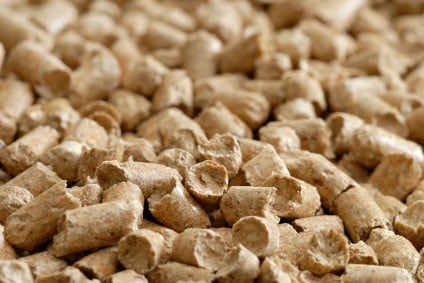3 min read
US Pellet Producer Receives First Sustainable Biomass Certification
John Greene
:
October 6, 2015

European energy producers are leading the way in the implementation of large-scale biomass projects, and feedstock sustainability is a critical component in the process of converting from coal to clean power. As these providers continue to incorporate renewable technologies into existing power plants, they are taking a proactive approach to ensure that their wood feedstocks meet certain sustainability criteria. This degree of responsiveness illustrates two important points unique to the renewables sector:
-
Energy providers are directly taking ownership within their industry by setting operational standards independent of any governmental agency.
-
This voluntary oversight provides a high level of transparency into the most sensitive aspect of energy production from biomass: sustainability.
The Sustainable Biomass Partnership (SBP) framework of standards and processes was developed within the industry to serve the larger biomass market as the benchmark for providing certification and assurance that woody biomass is sourced from legal and sustainable sources. Created in 2013 by some of Europe’s leading energy providers including Drax Power, Dong Energy, E.ON Energy and others, the “SBP's vision is an economically, environmentally and socially sustainable solid biomass supply chain that contributes to a low carbon economy.”
While its standards do not discount existing and independent sustainability schemes in other countries, the SBP’s application is unique to the European energy production sector. Its goal is not to compete with or replicate other certifications, but rather to augment what already exists, streamline a set of standards unique to the woody biomass industry and improve upon areas that are lacking. The SBP notes that “there is limited uptake of certification in some key forest source areas and the aforementioned schemes [FSC and PEFC] do not yet cover all the key requirements of biomass users.” Addressing a fundamental reality of modern, global markets, sourcing sustainably-grown feedstocks on an international basis is a challenge that the SBP effectively resolves.
SBP Criteria and Certification
The framework itself is particularly detailed; the “Standards” criteria alone consist of six unique sections that methodically lay the groundwork for the certification process:
-
SBP Standard 1: Feedstock Compliance Standard
-
SBP Standard 2: Verification of SBP-Compliant Feedstock
-
SBP Standard 3: Certification Systems. Requirements for Certification Bodies
-
SBP Standard 4: Chain of Custody
-
SBP Standard 5: Collection and Communication of Data
-
SBP Standard 6: Energy and Carbon Balance Calculation
The SBP assessment must then be carried out by an independent, third-party certification entity, and a biomass producer that demonstrates compliance will receive certification and is entitled to claim that the biomass it produces is SBP-compliant. NSF Sustainability, a division of global health and public safety organization NSF International Strategic Registrations, is an SBP-approved certification body in Canada and the United States, and the organization meets requirements to manage the SBP certification program going forward.
Pioneering Producer in the US
One American company recently became the first to receive the Biomass Producer certification under the SBP. The Westervelt Company announced that its wood pellet production facility in Aliceville, Alabama (operating as Westervelt Renewable Energy LLC) has received SBP certification from managing certification body NSF. Commenting on the accomplishment, Alicia Cramer, President of Westervelt Renewable Energy stated, “Seeking internationally-recognized certification for our renewable energy operations validates our ongoing commitment to best management practices as we seek to fulfill our land stewardship mission. With SBP certification, we have added another layer of affirmation that our long-established forestry and sustainability practices meet the needs of both the present and the future.”

“The Sustainable Biomass Partnership Framework provides a streamlined process of compliance with European standards,” noted Norman Boatwright, Manager of NSF International’s Forestry Programs. “Certifying leading North American organizations such as Westervelt Renewable Energy to the Sustainable Biomass Partnership Framework is an important and crucial part of protecting our forests and natural resources.”
As interest in biomass and wood-pellet heating technology increases on a global scale, forest resource sustainability continues to be an area that receives lots of attention—and rightfully so. Advocates for biomass generally agree that proper resource management coupled with sound environmental stewardship policies will fuel the industry’s growth, and responsible growth is the goal of business. The SBP certification process is the result of a collective agreement on the long-term vision for renewable energy produced from woody biomass.
The SBP is designed to be a working set of standards in a complex industry that is constantly evolving. While it is a comprehensive step in the right direction, it does raise some questions that still need to be addressed for the benefit of the industry. That said, Westervelt’s SBP certification is more than just an accomplishment for the company. It is a validation for the success of the wood pellet sector, as well as the sustainability initiatives of European energy producers and the larger forest products industry.





